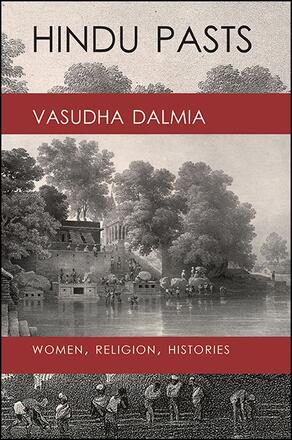
Hindu Pasts
Women, Religion, Histories
Alternative formats available from:
Challenges the monolithic view of Hinduism in the nineteenth century, and instead offers a vision of India that contains a rich multiplicity of Hinduisms, women’s stories, and cultural histories.
Description
In her introduction to Hindu Pasts—which showcases her work as a scholar of social, literary, and religious history—Vasudha Dalmia outlines the central ideas which thread her writings: first, to understand in greater historical depth the relationship between body language, religion, and society in India, as well as the ever-changing role of its religious and social institutions; second, to recognize that the Hindu tradition, which colonials and nationalists tend to see as monolithic, is in fact a multiplicity of distinct and semi-autonomous strands.
Vasudha Dalmia is Emerita Professor of Hindi and Modern South Asian Studies at the University of California, Berkeley. She has written, edited, and translated many books, including The Nationalization of Hindu Traditions: Bhāratendu Hariśchandra and Nineteenth-Century Banaras; Poetics, Plays, and Performances: The Politics of Modern Indian Theatre; and Fiction as History: The Novel and the City in Modern North India.
Reviews
"These essays, taken together, provide an important resource for our understanding of how Indian modernity and the nation have been crafted—but urge us to consider how this shaping has been undertaken in different ways and at different locations. " — H-Net Reviews (H-Asia)
"Dalmia's rich collection of essays attends to gender and women's roles as articulated in and through literary traditions in multiple places … her incredibly close attention to her sources and astute analyses as a literary and social historian are enduring. " — Journal of the American Academy of Religion
"The volume showcases some of the best works of Dalmia on the mixed legacies of modernity and colonialism vis-à-vis history, religion, language, and gender. Notwithstanding differences of opinion, the work is valuable for highlighting the complexity of issues and for presenting before the reader a veritable wealth of sources that open a new window into the past. " — Reading Religion